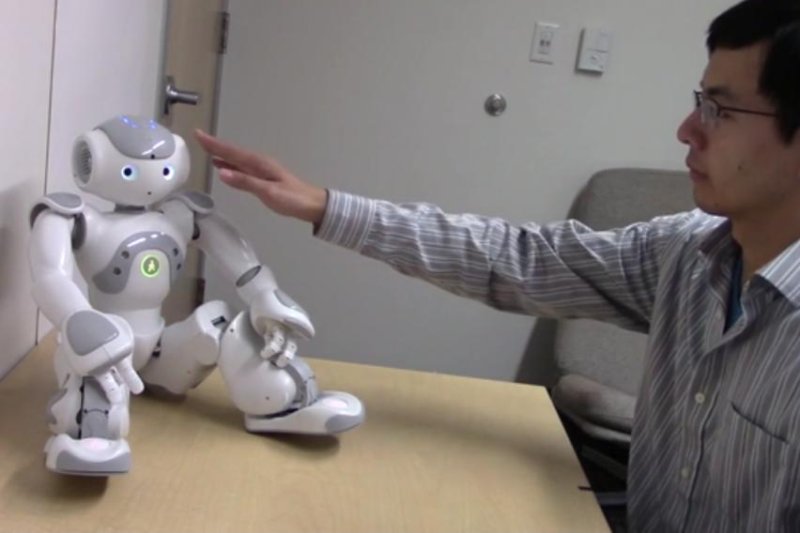FUKUOKA, Japan, April 5 (UPI) -- What happens when humans touch a robot? What happens when humans touch a robot in intimate areas? Researchers at Stanford University say the answers to those questions can help us understand how we relate to humanoids.
In a recent study, researchers showed that humans experience "physiological arousal" when touching the intimate parts of a humanoid robot.















